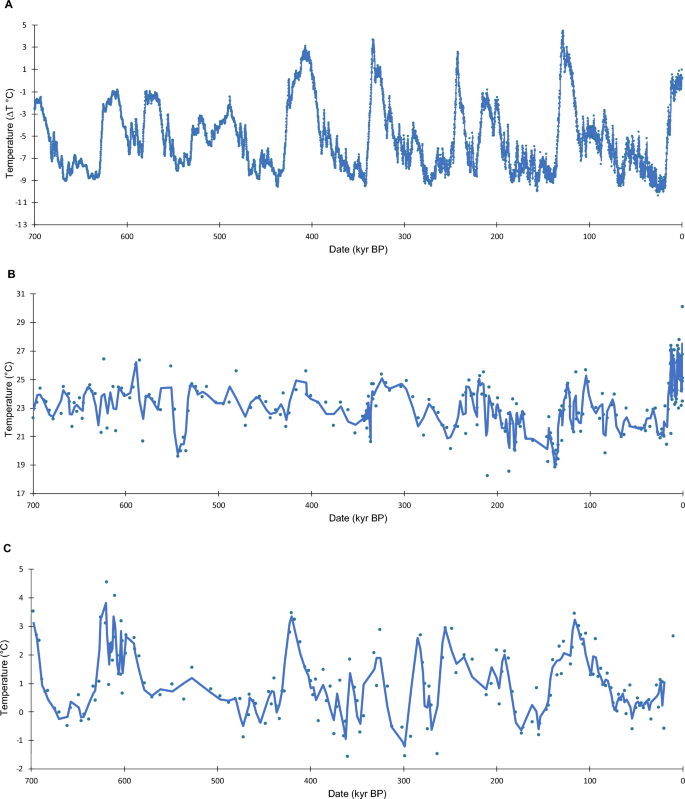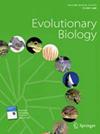Climate Change Predictive of Body Size and Proportionality in Humans
IF 1.9
2区 生物学
Q3 EVOLUTIONARY BIOLOGY
引用次数: 0
Abstract
Abstract The effects of climate change on plants and animals have been examined across numerous species, yet little evidence has been produced to demonstrate an influence on human evolution. Here the impact of climate change on human body size and scaling is examined over a period of 700,000 years using five independent paleoclimate records. Across 247 Homo specimens, body mass averaged significantly smaller during periods of climatic warming as compared to cooler cycles. Body proportions also changed significantly, appearing more ectomorphic during warmer periods and more endomorphic during periods of cooling across a sample of 87 specimens. The results indicate a relationship between climate change and body size and shape in humans that is driven by natural selection in response to thermoregulatory demands. The findings suggest that body size adaptations in response to climate change occurred early and potentially implicated cultural adaptations in later periods, muting the morphological response to extreme climates. Because morphological variation has been used as a factor for classification within the genus Homo , taxonomic and phylogenic decisions may need to be reconsidered in the context of temporal climate differences.

气候变化对人类体型和比例的预测
气候变化对植物和动物的影响已经在许多物种中进行了研究,但很少有证据表明气候变化对人类进化的影响。在这里,利用五个独立的古气候记录,研究了70万年以来气候变化对人体尺寸和尺度的影响。在247个人类样本中,与较冷的周期相比,气候变暖期间的平均体重明显变小。在87个样本中,身体比例也发生了显著变化,在温暖时期更显生态型,在寒冷时期更显内生型。结果表明,气候变化与人类体型和体型之间的关系是由自然选择驱动的,以响应体温调节需求。研究结果表明,对气候变化的体型适应发生得较早,并且可能与后期的文化适应有关,从而减弱了对极端气候的形态反应。由于形态变异已被用作人属分类的一个因素,分类和系统发育的决定可能需要在时间气候差异的背景下重新考虑。
本文章由计算机程序翻译,如有差异,请以英文原文为准。
求助全文
约1分钟内获得全文
求助全文
来源期刊

Evolutionary Biology
生物-进化生物学
CiteScore
3.80
自引率
4.00%
发文量
25
审稿时长
>12 weeks
期刊介绍:
The aim, scope, and format of Evolutionary Biology will be based on the following principles:
Evolutionary Biology will publish original articles and reviews that address issues and subjects of core concern in evolutionary biology. All papers must make original contributions to our understanding of the evolutionary process.
The journal will remain true to the original intent of the original series to provide a place for broad syntheses in evolutionary biology. Articles will contribute to this goal by defining the direction of current and future research and by building conceptual links between disciplines. In articles presenting an empirical analysis, the results of these analyses must be integrated within a broader evolutionary framework.
Authors are encouraged to submit papers presenting novel conceptual frameworks or major challenges to accepted ideas.
While brevity is encouraged, there is no formal restriction on length for major articles.
The journal aims to keep the time between original submission and appearance online to within four months and will encourage authors to revise rapidly once a paper has been submitted and deemed acceptable.
 求助内容:
求助内容: 应助结果提醒方式:
应助结果提醒方式:


